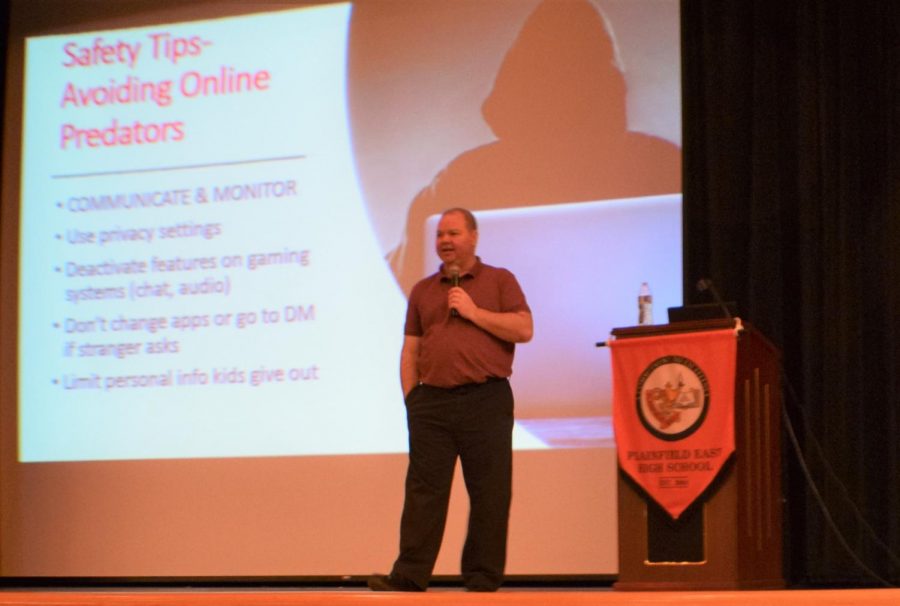Program teaches valuable social media skills
April 4, 2019
The social media safety program “The Screen Zombie- How to Develop a Healthy Relationship with Social Media”, was presented on Feb. 27 by Jeff Bean, a police officer and the president and founder of Safe Schools 4 All, at Plainfield East as part of an ongoing series by the Plainfield Parent Community Network.
“He was not there to scare, but to educate and demonstrate strategies for having a safe digital life,” clinical psychotherapist Nicole Knepper said.
The main purpose of the program was to provide the audience members with the most accurate information so that they can stay safe on social media.
“We live in a world full of good people, but the truth is that there are some bad ones out there who can hurt us if we don’t know how to keep ourselves safe,” Knepper said. “Knowledge is power and technology is always evolving.”
Bean showed demonstrations of the social media apps that many teens use.
“Jeff presented real-time demonstrations of the most popular social media apps amongst kids and teens, proven strategies for keeping kids safe online, discussed the positive and negative effects of social media and technology and parenting tips on how to realistically establish and define your child’s and your relationship with technology and social media,” Plainfield East Director of Student Services Tim Albores said.
The Plainfield Counseling Center, Ride the Wave Wellness Inc. and District 202 sponsored this event.
Parents, grandparents, relatives, grade school teachers, staff, administrators, counselors, psychologists, nurses and social workers were encouraged to attend the presentation.
One reason for the program was to bring to light how predators infiltrate popular social media.
“The risks of predators disguising themselves as teens has been trending in greater numbers over the last several years,” Albores said. “It is important for parents to understand how these mediums work, how to monitor and support their child as they use social media, and how to ensure their child is being safe online.”
The program was heavily focused on educating parents.
“It’s our job to teach and guide and understand that although we can’t give you our experience, we can give you boundaries, support and knowledge,” Knepper said. “It would be perfect if we could come together and find a way for everyone to do their part in keeping all of us as safe as possible.”
Bean also informed parents how to protect their child from the dangers of social media by setting limits for their child being on social media.
“Parents should monitor their child’s social media accounts, either personally or using monitoring software,” Bean said. “Parents shouldn’t over react, and [they should] keep communicating with their kids about this topic.”
Part of the program was geared towards making teens aware of the dangers with being on social media sites.
“People judge you based on how you portray yourself online,” Bean said. “Next, it protects you personally from things like cyberbullying or online predators.”
Students can stay safe online by setting limits, Bean encouraged turning off their phone throughout the day, not talking to strangers and using the privacy settings on their phone.
“Use your privacy settings on all the apps and turn off geo locations,” Bean said. “Keep your parents involved in what you are doing online and report any issues you can’t control to an adult you trust.”







